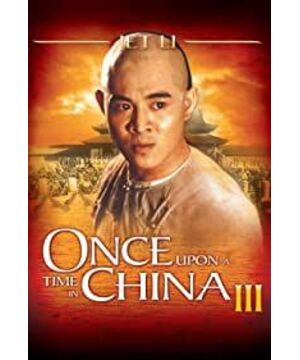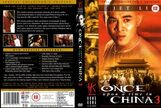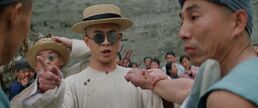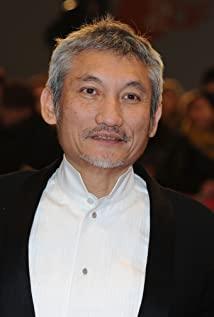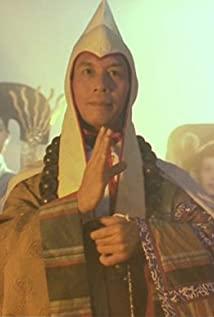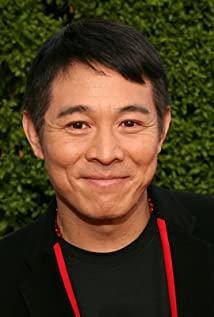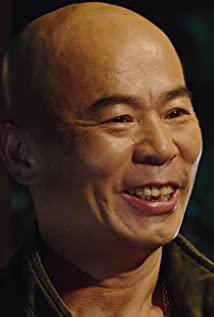Over the weekend, I revisited the Huang Feihong trilogy by Mr. Xu, and after reading it, I couldn't help but sigh, I just blamed myself for not being enlightened at all when I was young.
30 years ago, Tsui Hark already had too many ideas and concepts that surpassed the times. Otherwise, it is impossible for a folklore IP, which may have been mediocre at first, to be transformed into a beautiful memory of a generation. This memory has transcended the limitation of time, and its youth will last forever. It has become our own unique cultural export and show.
I believe that Tsui Hark must be a firm supporter of historical materialism. The trilogy is not only the gradual display and transformation of Wong Fei-hung's (Tsui Hark) ideology, but also one of the best works after Tsui Hark's in-depth thinking on Chinese historical issues and incorporating his own artistic techniques.
Tsui Hark boldly gave the trilogy series a majestic English name - "Once Upon a Time in China", which translates as "Once Upon a Time in China".
We know about Sergio Leone's past trilogy, and probably his classic Red Dead trilogy about Legends of the West, but when it comes to the Chinese past in our own country, many people won't be able to say it for a while. It is only now that we know that we already have our own Chinese past as early as 30 years ago. Huang Feihong trilogy, if you look closely, it is completely worthy of such a title and status.
It can be seen that Tsui Hark started from the top down, holding a very high height to shoot Huang Feihong, instead of simply following the excessive trend of Hong Kong martial arts films at the time, this will not be just a simple martial arts film, It is a film that incorporates Tsui Hark's own philosophical thinking.
In the first part, Huang Feihong was only a master of the generation who knew Foshan's shadowless feet. He believed that starting a militia group and practicing martial arts was the way to save the country, but under the impact of foreign guns and foreign guns, he witnessed Yan Zhendong's iron and steel. How the cloth shirt was vulnerable to foreign guns and foreign cannons, he also witnessed how the country's ignorant people worship foreigners, live without dignity, fear foreign culture, dare not stand up to resist, and also witness the current troubled times, internal and external troubles, everyone Even when his own people beat their own people, Huang Feihong's dream of saving the country began to shatter.
In the second part, about saving the country through medicine, Huang Feihong came to Guangzhou, the provincial capital, from a small place in Foshan. Compared with the first book, People's Wisdom has been opened up, and the Chinese people have begun to have the courage to fight against foreign cultures. However, the people's wisdom has not been opened, and there is no packaging of scientific theory. Instead, the behavior of the Chinese people to save the country has turned to the path of feudal superstition. The White Lotus Sect burns down the Tongwen Museum, and today keeps saying boycotting Japanese goods, but in the end it hurts their own people. How consistent. And Sun Wen's revolutionary ideas are still only conceived in the baby at this time, just like the rags of the blue sky and white sun in the last first edition of the movie, the spark of fire may be extinguished at any time.
As for the military attache in the late Qing Dynasty played by Donnie Yen, he speaks words of self-consciousness and shame. He also has a background of combining Chinese and Western, and even began to consciously have the confidence to fight against foreign guns. Under the impact of foreign guns and foreign cannons, it is still vulnerable. Coincidentally, Donnie Yen's later Ip Man series has more or less the shadow of Huang Feihong's family and country feelings, which is vaguely a kind of inheritance of cultural thinking and self-confidence. But whether it is the height of thinking or the depth of the final film, it is far less dramatic than that of Huang Feihong's ideological change.
In the third part, Huang Feihong finally realized that only by widening the people's wisdom and changing their minds can it be possible to save the country. The trace of Huang Feihong also came from Guangzhou to Beijing, a center of national revolution and conflict. The Empress Dowager Cixi in the Forbidden City still had no idea that the wheels of history were rolling forward outside the city. The scene at the beginning of the movie is all kinds of bloated, flashy and unrealistic superficial prosperity played by the Empress Dowager Cixi, but the scene in the next second immediately cuts to the steam train rushing forward, as if to say that the wheel of history is always moving forward. Sooner or later the decaying history of the old days will die.
As for the lion king's hegemony, it is more like a farce of self-deception before the demise of the decadent Qing Dynasty. Even a high-ranking person such as Li Hongzhang has not yet reached the height of widening the wisdom of the people, let alone the lower-ranked people and the foolish people. This is like the group of ignorant lion heads who know nothing but Caiqing in the final movie of the lion king's hegemony. Caiqing's final exchange was not a turnaround of the national fortune at all, but just the sound of another conspiracy gunshot from the foreign powers. If everyone is still standing still and not connecting with the outside world, our lion heads are just vulnerable paper tigers.
After the trilogy, I have to say that Tsui Hark is really well versed in the trend of historical development. Tsui Hark put his all-world spirit and the heart of his sons and daughters on the image of Jet Li, the new-born Huang Feihong. This is not just an accidental fate. The Hong Kong martial arts film series that will become popular at times is also the best reflection and presentation of historical and philosophical issues such as the great man in Chinese culture, the old monster Xu in Hong Kong, who stands high at the intersection of Chinese and Western cultures. This belongs to us. Home's cultural export and China's past.
View more about Once Upon a Time in China III reviews


